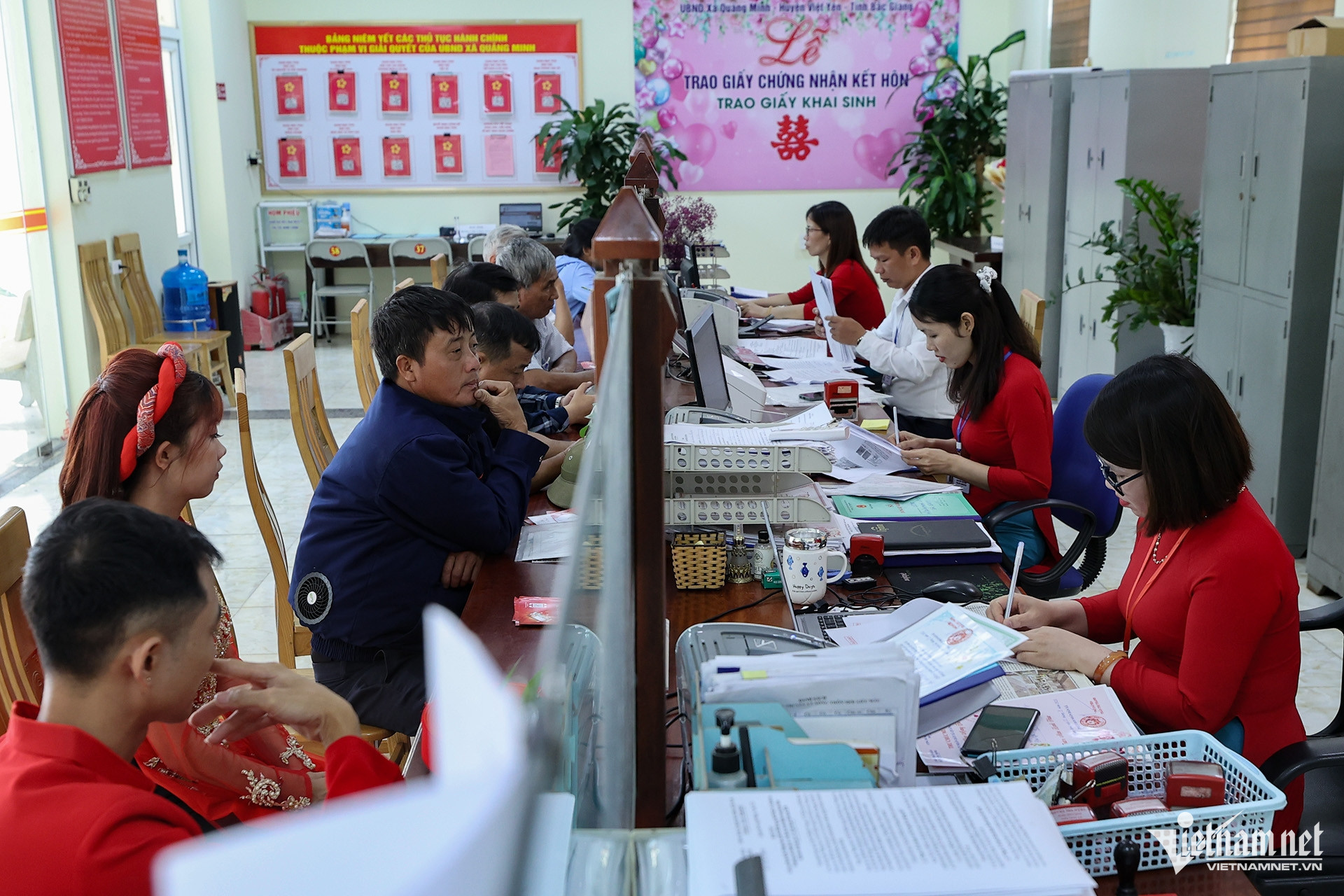
Following the proposed administrative mergers, both Hanoi and Ho Chi Minh City will be permitted to elect 125 deputies to their respective People’s Councils - an increase of 30 over the current limit.
According to the draft revised Law on Local Government, which is scheduled for presentation at the National Assembly's session this May, the number of People’s Council (HĐND) deputies is clearly defined for provincial and commune-level administrative units.
For mountainous and highland provinces with populations of up to 500,000, 50 deputies will be elected. For every additional 50,000 residents, one more deputy is allowed, with a cap of 90 deputies in total.
For other provinces with populations of up to 1 million, 50 deputies will also be elected. For populations exceeding 1 million, one deputy may be added for every additional 75,000 residents, but the total number cannot exceed 90 deputies.
Centrally governed cities with up to 1 million residents are allowed to elect 50 deputies. For every additional 75,000 residents beyond that, one more deputy may be elected, again with a maximum of 90.
However, under the new draft law, Ho Chi Minh City is granted the right to elect 125 deputies. Hanoi, following the provisions of the Capital Law, will also elect 125 deputies - 30 more than the current regulation allows.
People’s Council structure at commune level
For communes in mountainous or highland areas:
Up to 5,000 residents: 20 deputies
Between 5,001 and 7,500 residents: 25 deputies
Between 7,501 and 10,000 residents: 30 deputies
Above 10,000 residents: one additional deputy for every 1,000 residents, up to a maximum of 40 deputies
For other communes:
Up to 10,000 residents: 20 deputies
Between 10,001 and 12,500 residents: 25 deputies
Between 12,501 and 15,000 residents: 30 deputies
Above 15,000 residents: one additional deputy per 1,500 residents, not exceeding 40 deputies
For wards in mountainous or highland areas:
Up to 10,000 residents: 20 deputies
Between 10,001 and 12,500 residents: 25 deputies
Between 12,501 and 15,000 residents: 30 deputies
Over 15,000 residents: one more deputy per 1,500 residents, not to exceed 40
For other wards:
Up to 15,000 residents: 20 deputies
Between 15,001 and 20,000 residents: 25 deputies
Between 25,001 and 30,000 residents: 30 deputies
Over 30,000 residents: one additional deputy for every 3,000 residents, capped at 40
For special island districts:
Up to 2,500 residents: 15 deputies
Between 2,501 and 5,000 residents: 20 deputies
Between 5,001 and 7,500 residents: 25 deputies
Between 7,501 and 10,000 residents: 30 deputies
Over 10,000 residents: one more deputy for every additional 1,000 residents, with a cap of 40 deputies
Appointment process after administrative merger
According to Conclusion 150 of the Politburo, which guides personnel plans during the merger or formation of new administrative units, elections will not be held for leadership positions such as chairpersons or vice chairpersons of the People’s Councils and People’s Committees; heads and deputy heads of National Assembly delegations; heads of People’s Council committees; or members of People’s Committees.
Instead, the Standing Committee of the National Assembly, the Prime Minister, and the Standing Committees of the provincial and commune-level People’s Councils will appoint individuals to these positions based on recommendations from competent Party committees.
In exceptional cases, the appointment of non-deputies to leadership roles in newly established councils at provincial and commune levels will be permitted.
The conclusion also clarifies that at the time of merger, the number of vice chairpersons and deputies in various departments and units may temporarily exceed standard limits. However, within five years, staffing must be adjusted to comply with legal regulations. At that time, council leaders will be elected from among the deputies, based on nominations submitted by the previous term's Standing Committee.
Nguyen Thao